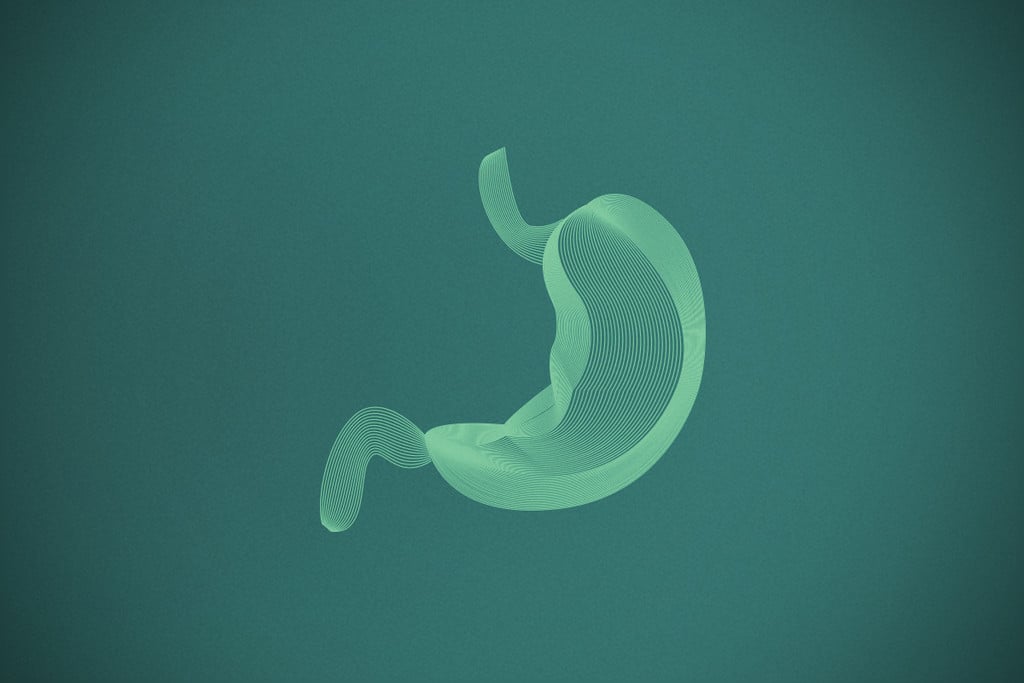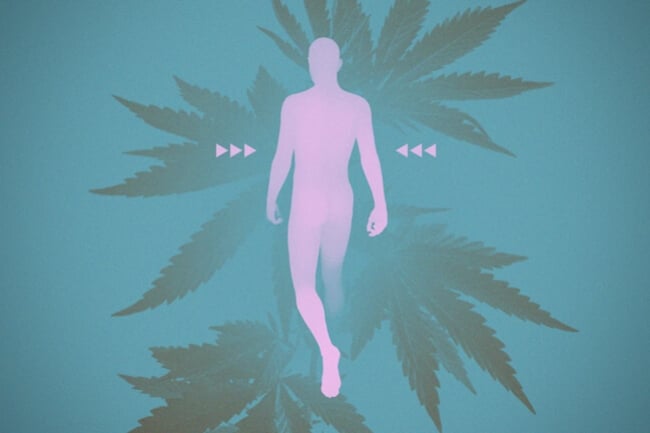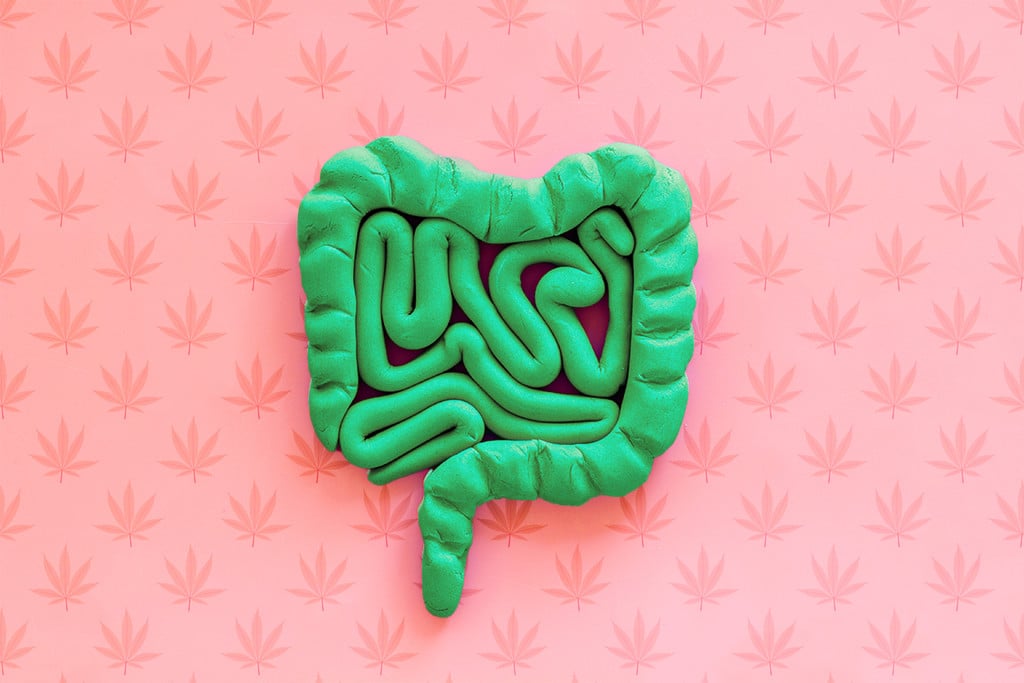.

Does CBD Enhance Gut Health and Help Digestion?
Could CBD benefit gut health? How are the two connected? Let's explore the complex role of the gut, and its relationship with the endocannabinoid system and cannabinoids like CBD.
Contents:
Gut health is something we tend to overlook. It’s probably because many problems that may arise down there aren’t as distressing as a bad migraine, for instance.
Little do we know that the gut’s function goes way beyond just digestion and absorption of nutrients. It also affects immune system function, the metabolism of potentially harmful food compounds, and the synthesis of vitamins and other nutrients.
Experts say that a healthy gut is a way to a healthier you. They’ve also made some fascinating discoveries that connect the endocannabinoid system and CBD to this equation.
That’s right. Over the last few years, studies have investigated cannabidiol’s potential to enhance gastrointestinal health and digestion. But, how exactly might it work?
Why Is Gut Health Important?
As stated, the gut is responsible for several vital functions. Keeping it healthy also means maintaining balance throughout the entire body.
See, the microorganisms inhabiting the gut conform as part of a larger environment called the microbiome. Think of it as a busy metropolis for the trillions of organisms that exist within our bodies. We’re talking about bacteria, parasites, viruses, and fungi.
Now, when you hear about these four types of microbes (otherwise known as microbiota), you may automatically associate them with diseases.
In a healthy body, there is a harmonious relationship[1] between the distinct symbiotic or saprophytic—beneficial (in proper proportions)—microbes. They can coexist with no issues whatsoever. But, as soon as a disturbance hits—whether in the form of a disease, poor diet, or certain medication—that’s when the body becomes more prone to illness. Some of these illnesses can be caused by a population overgrow of the some of these “good” microbes (often called facultative pathogens).
Other microbes that can be found occasionally in the bowels are the “strict” pathogenic (disease-causing) ones, which are only present in the body when they cause such conditions.
We also mentioned a correlation between gut health and brain function. That’s because the two are connected by loads of neurons. The microbiome also controls the production of neurotransmitters[2].
All of this sheds some light on why the term “gut feeling” exists, and its connection to logic and reasoning.
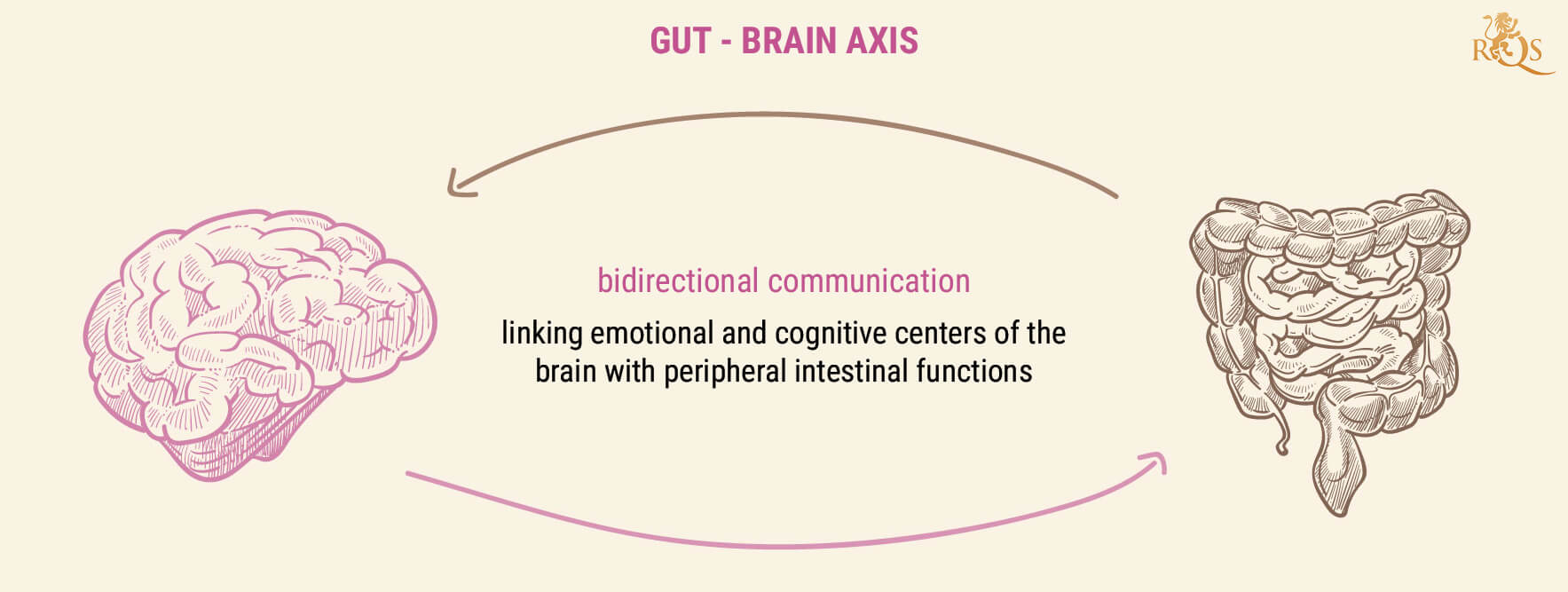
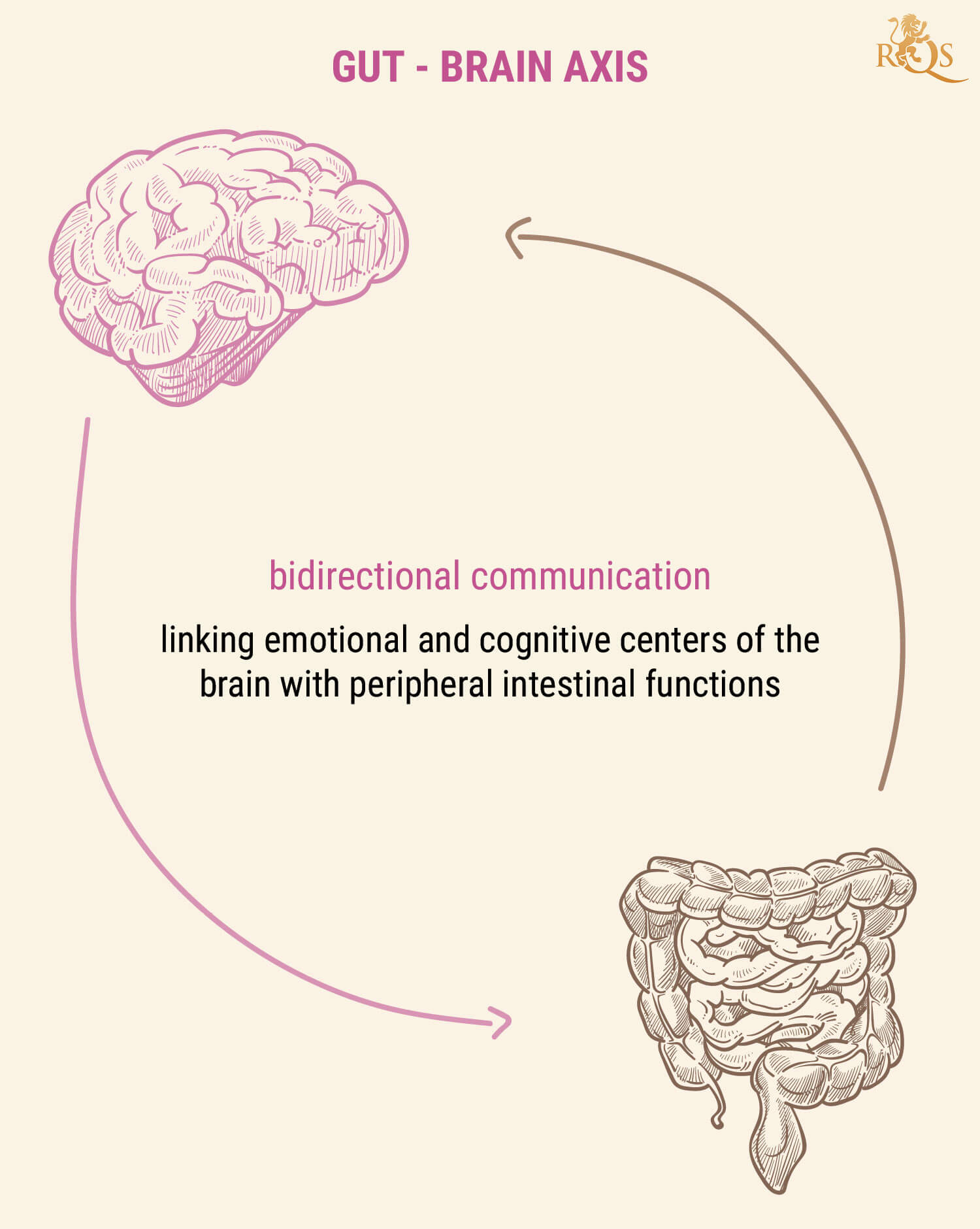
How Your Digestive System Works
The microbiota serve several purposes[3] in the microbiome. Apart from activating the immune response, they also digest potentially toxic food compounds. To have a better understanding of how microbiota benefit the body, we’ll take a deeper look at the gastrointestinal system.
Simple sugars, for example, are easily absorbed by the gastrointestinal (GI) tract through the upper regions of the small intestine. That isn’t the case with complex carbohydrates, which go through the large intestine. From there, the microbiota take over to complete the digestion process with the help of their digestive enzymes.
The microbiota in a healthy individual also act as the body’s protector from pathogenic organisms. These are organisms that enter the system through consumption of contaminated food and water.
A good example is the bacteria found within the bowels. These microbiota help prevent the excessive growth of facultative pathogens by competing for the absorption of nutrients.
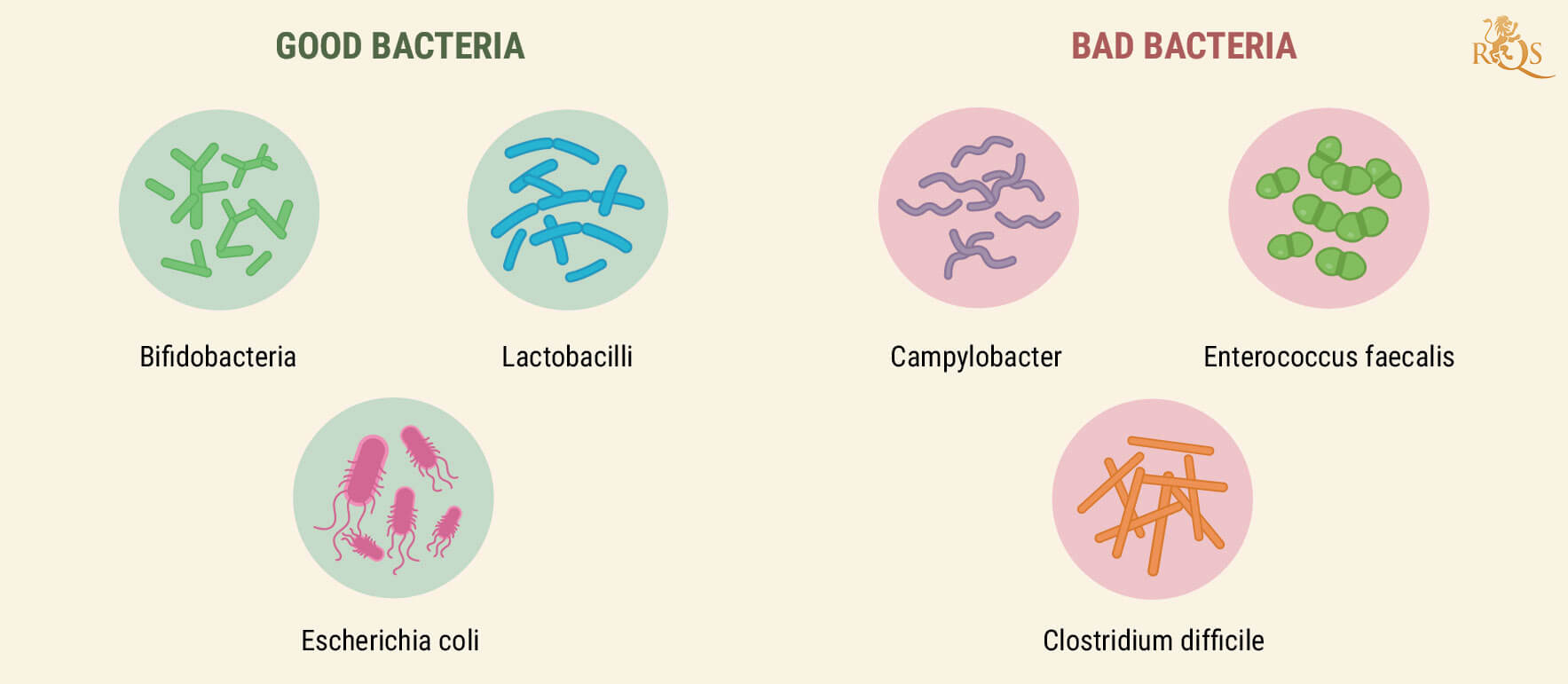
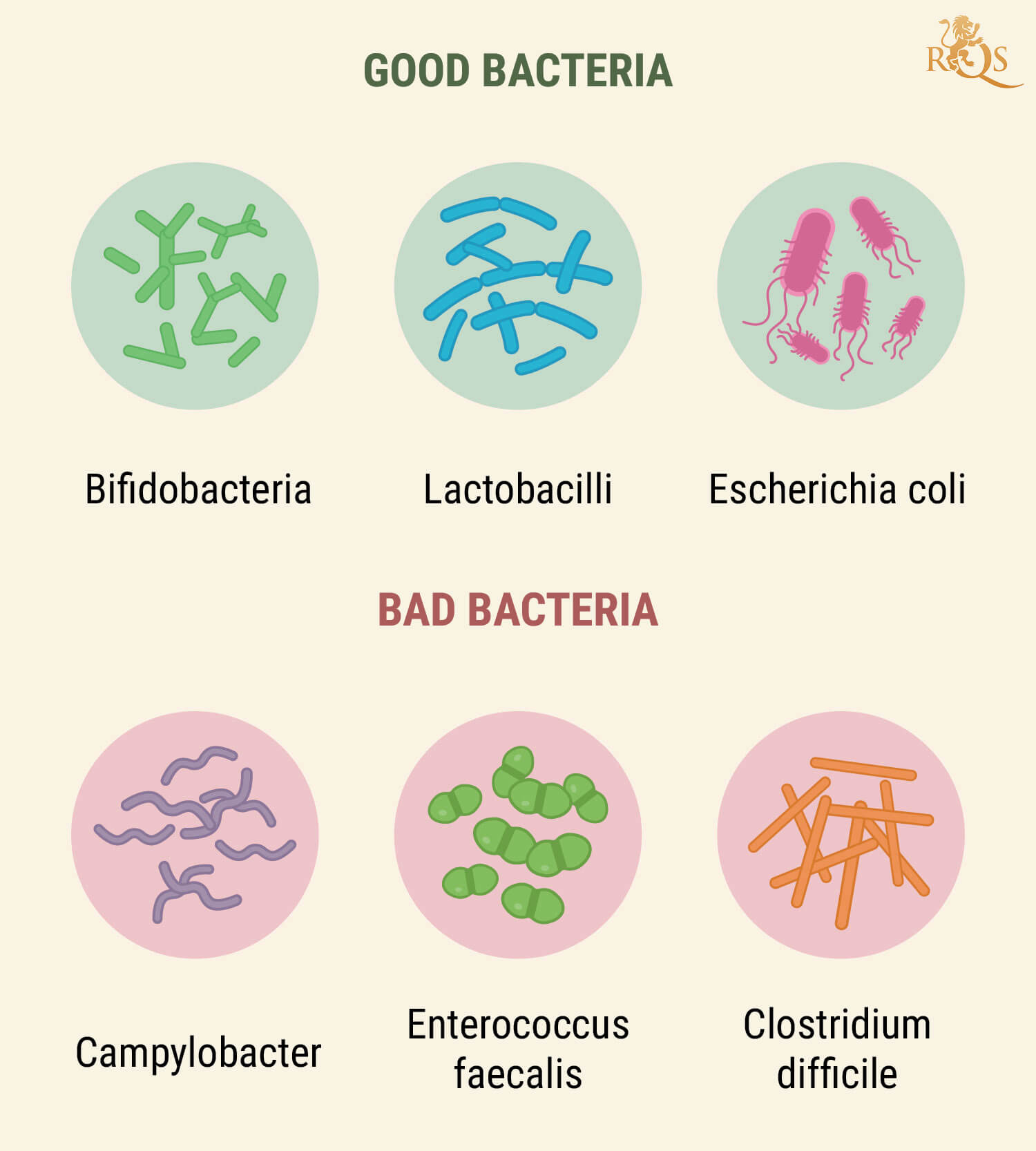
The Link Between Your Gut and the Endocannabinoid System
Before we can adequately discuss CBD's potential effect on gastrointestinal health, we need to examine the endocannabinoid system.
The ECS is made up of a network of ligands and cell receptor sites that are scattered throughout the body. The system passes through several vital regions, including both the central and peripheral nervous system, as well as the immune system. And, given its wide reach, it deals with important functions like sleep, mood, memory, immune response, reproduction, appetite, and fertility.
The ECS has two primary receptors: CB1 and CB2. The former are largely situated on nerve cells in the spinal cord and brain, whereas the latter are embedded mostly within immune tissues.
Recent research has found a connection between the ECS and the gastrointestinal system. With the help of the vagus nerve, the ECS may be able to maintain neurotransmission between the gut and brain. For example, a 2016 review[4] draws a link between the gut’s endocannabinoid signalling system and bowel motility, gut–brain-mediated fat intake, and hunger signalling.
There’s also a potential bridge between the ECS and the microbiome concerning mood disorders. Take this 2020 study[5] on mice, which found that alterations of the microbiota in the intestines caused depressive symptoms.
But with the help of endocannabinoid signalling (aka activating its receptors), these depressive symptoms were shown to be reduced. This study is quite preliminary, but it sheds new light on a subject that has yet to receive sufficient study.
How Could CBD Affect Gut Health?
Some studies have investigated CBD’s potential effects on gut health. Let’s examine what we know so far.
-
CBD and Inflammatory bowel diseases (IBD)
In a nutshell, inflammatory bowel disease is a condition wherein chronic inflammation occurs in the digestive tract. The two most common types of inflammatory bowel disease are ulcerative colitis and Crohn’s disease.
Basically, ulcerative colitis (UC) happens when superficial ulcers form in the large intestine and rectum. Crohn’s disease, on the other hand, is characterised by deeper inflammation along the GI tract’s lining.
Ongoing studies are testing CBD against neuropathic and inflammatory pain[6], as well as intestinal inflammation[7].
In the latter study, researchers examined rectal biopsies of ulcerative colitis patients as one way to determine the efficacy of CBD. Interestingly, the researchers believe CBD may exert effects relevant to UC via the PPAR-γ receptor pathway.
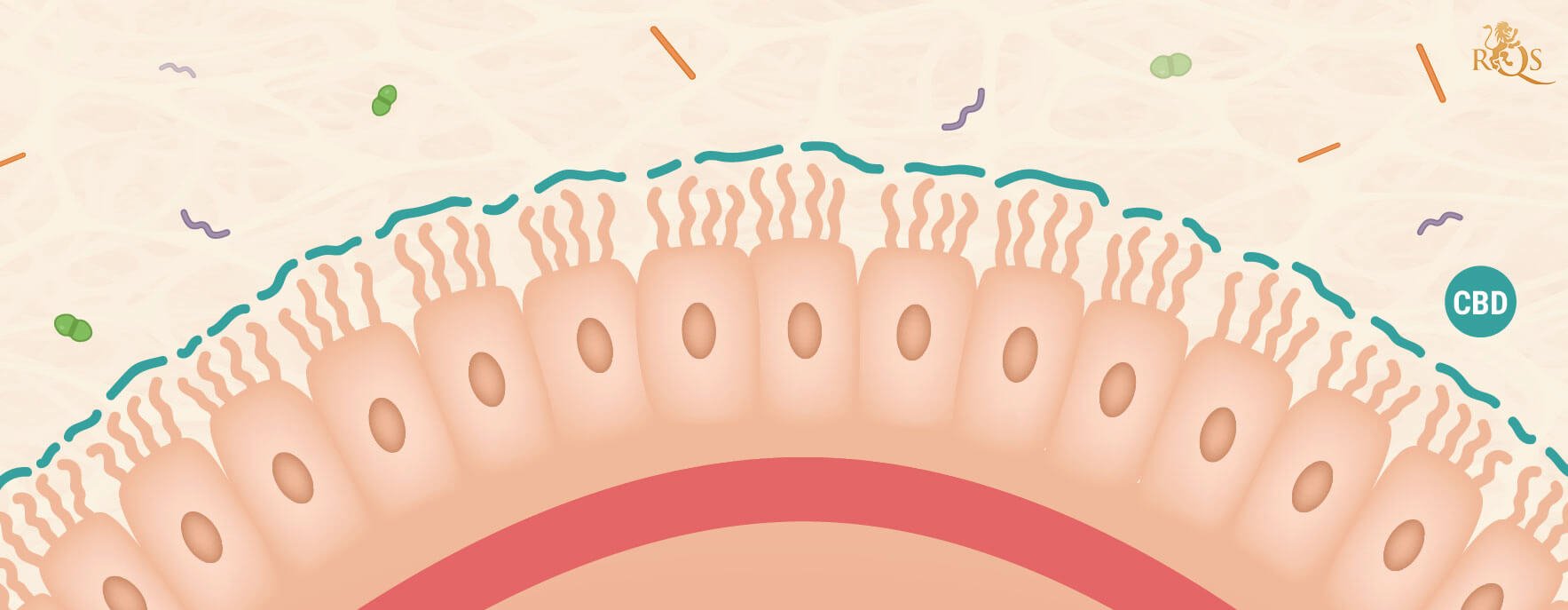
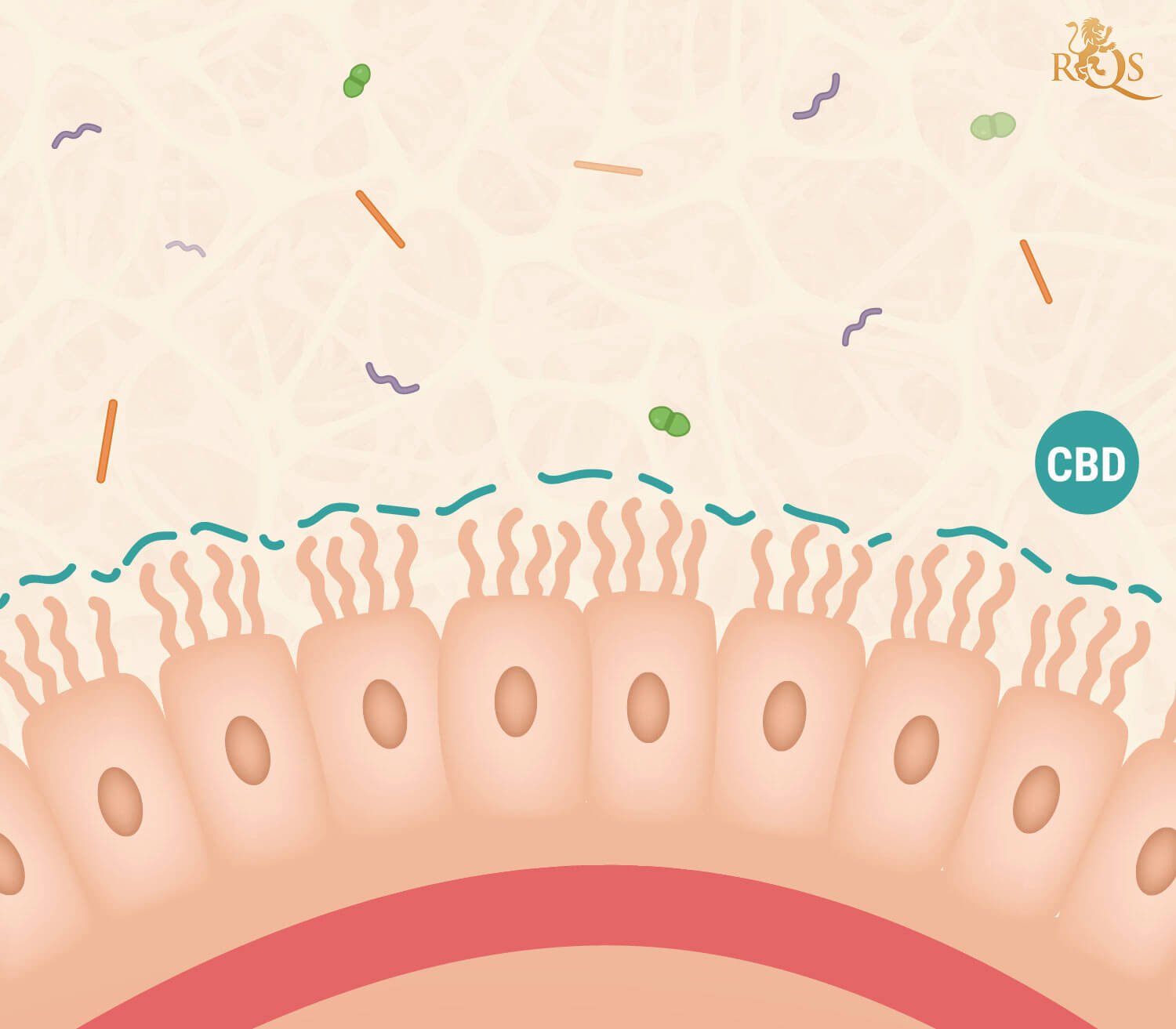
-
CBD and Irritable Bowel Syndrome (IBS)
Those who have irritable bowel syndrome know how uncomfortable its symptoms can be. People with this condition go through episodes of abdominal pain and cramping, diarrhoea or constipation, and bloating. It’s never a fun time.
Doctors can treat IBS patients with antidepressants. However, the results don’t always turn out to be adequate.
A study[8] published in 2020 sought to determine how to exploit the endocannabinoid system to benefit IBS patients. Here, the authors admit there is a lack of conclusive evidence on CBD’s potential interaction. The main points of interest are in CBD’s potential to desensitise the TRPV1 receptor (partially responsible for regulating inflammation and pain) and to raise anandamide levels through inhibition of FAAH.
-
CBD and Leaky Gut
It’s understandable to be thrown off by the name. A leaky gut is theorised to happen when damage occurs in the small intestine. The result: undigested food, bacteria, and waste products end up leaking through the intestines and into the blood.
Symptoms of leaky gut include bloating, fatigue, skin problems, sensitivity to certain foods, and other digestive issues.
One of the causes of leaky gut is Clostridioides difficile overinfection[9] (CDI), in which toxins can affect the bowels’ permeability. It’s a condition seen commonly in older adults who have received antibiotic therapy.
In this regard, a 2017 study[10] looked into whether cannabidiol could ameliorate dysfunction in the intestinal barrier and the induced apoptosis (programmed cell death) in patients affected by C. difficile toxins.
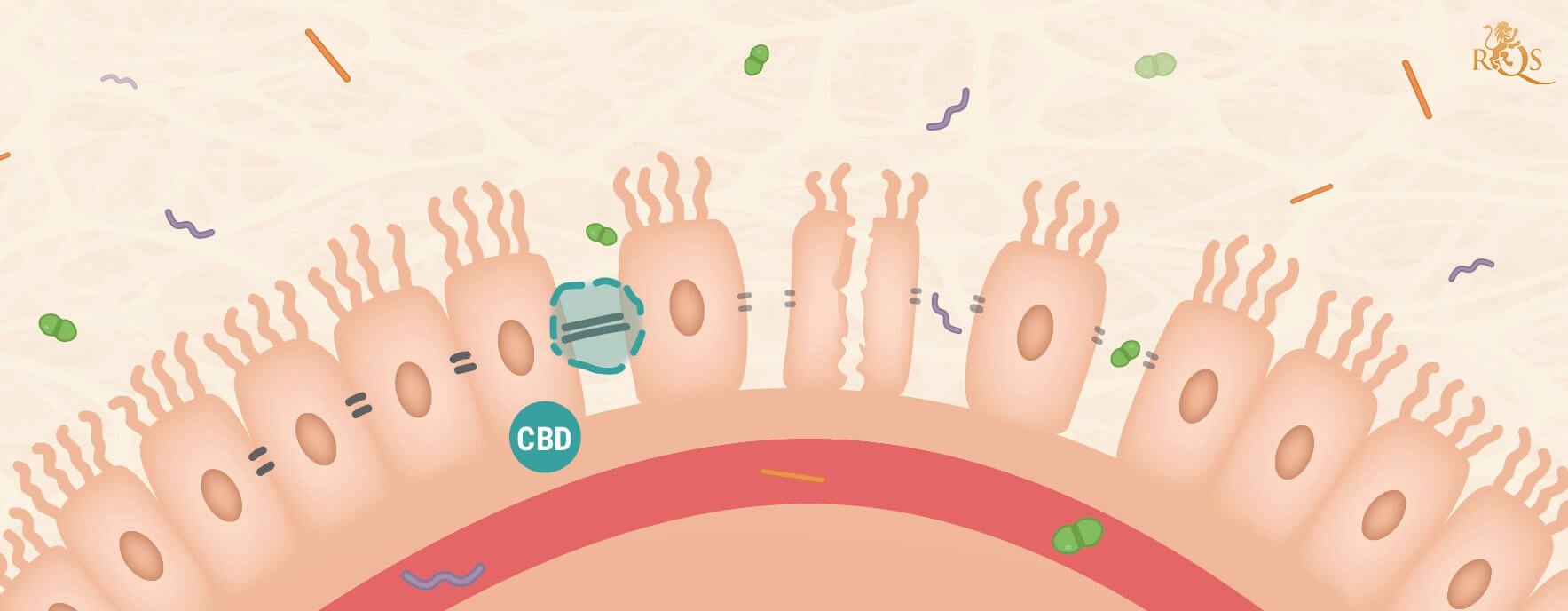
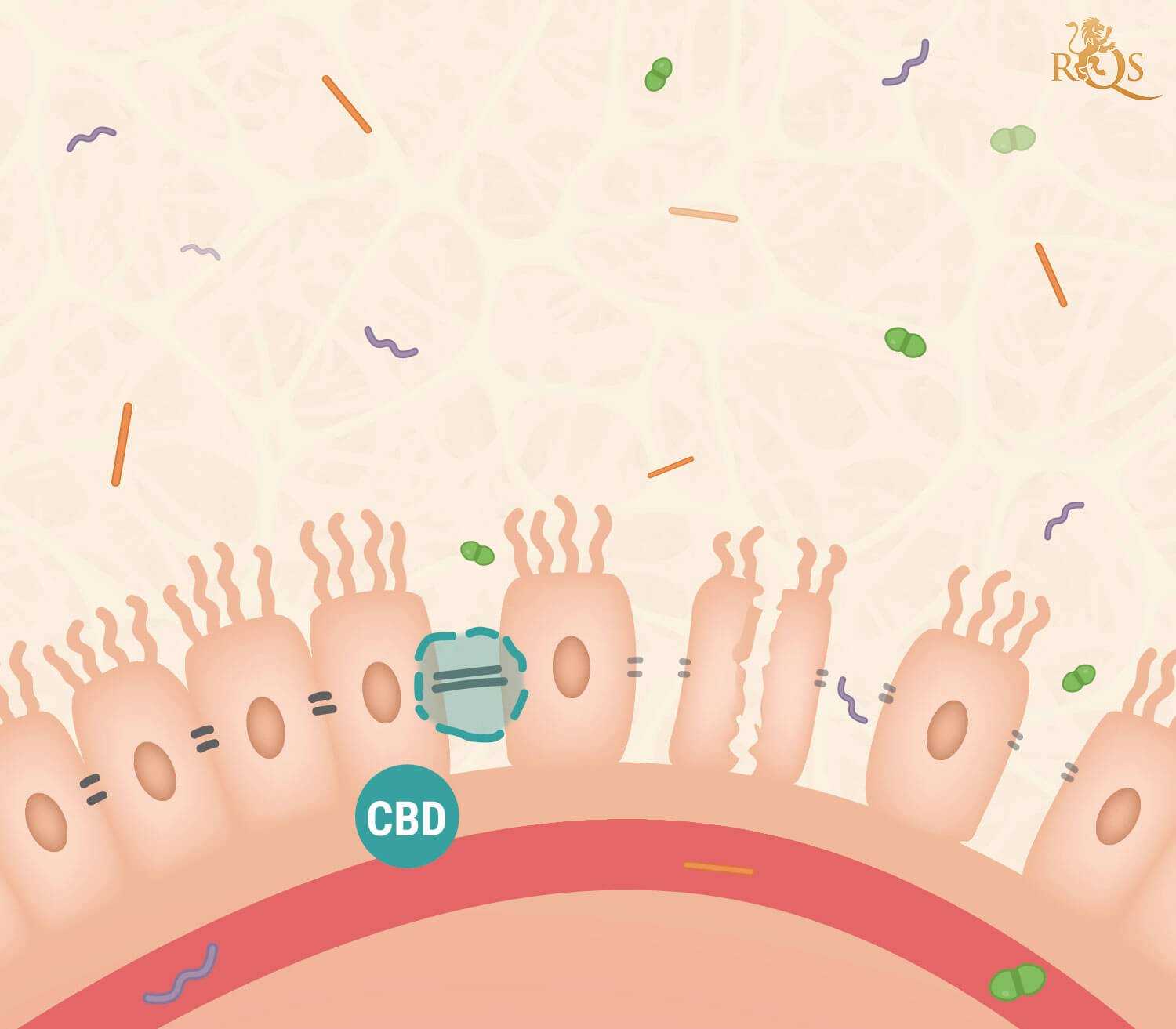
-
CBD and Gut Microbiota
Experts found scientific rationale for probing the therapeutic potential of cannabis for the treatment of some aspects of colon cancer in a 2017 study[11].Though we cannot make any conclusions, it’s highly beneficial that CBD and cannabis are undergoing deeper scientific inquiry.
Some scientists are aiming to explore the effects of CBD on the microbiome. Why? Because this massive community of organisms has a big impact on human health, including immune function, digestion, and intestinal conditions.
However, it is evident that there is a long way to go regarding CBD and gut health, as the authors of this October 2020 study[12] state. “Importantly, while FO [fish oil] and n-3 PUFAs have been tested in experimental colitis also with regard to their effects on the gut microbiota, no preclinical or clinical study has ever been conducted with CBD in this context”.
The Impact of Psychological Factors on Gut Health
In an earlier section of this article, we briefly touched upon how stress may lead to gut-related issues like IBS. In fact, around 40–60%[13] of IBS sufferers also deal with mental health disorders like anxiety and depression.
Stress may also aggravate IBS[14] by inducing changes in intestinal permeability, which can thereby also cause inflammation. It may also reduce intestinal blood flow and motility.
Interestingly, numerous studies are looking to see if CBD can impact stress and anxiety, including this 2019 study[15] on CBD and social anxiety disorder in Japanese teens.
Sleep-related anxiety is another area in which CBD is receiving more intense study. Let’s take this 2019 study[16] involving 103 participants, 82 of which had documented episodes of anxiety and/or a sleep disorder diagnosis. Each of them was prescribed CBD for an entire month.
The overall findings showed that 79.2% and 66.7% of all patients experienced an improvement in anxiety levels and sleep disorders, respectively. Two months after CBD treatment, the numbers remained fairly consistent at 78.1% and 56.1%, respectively.
Balancing Gut Health With the Help of CBD
As we’ve learned, gut health is essential to overall health.In an effort to keep illness at bay, and to generally promote a healthy gut, it's essential we gain a better understanding of the role of the endocannabinoid system. While few direct conclusions can be made regarding CBD’s effects on gut health specifically, its good safety profile, accessibility, and non-toxic nature have made it a key part of numerous related studies.
As of right now, more research needs to be done before medical experts can begin to really consider CBD as a viable treatment option for issues related to gut health. Remember, CBD is largely used as a supplement to benefit well-being, and it should never be used in replacement of medical treatment. Always talk to your doctor before starting a new supplement regimen.
Given the complexity of gastrointestinal health, it would be best to keep yourself in top shape, both physically and mentally, in order to keep things running smoothly. If you feel CBD helps you to achieve that, go ahead and use it to your advantage!
- The Microbiome | The Nutrition Source | Harvard T.H. Chan School of Public Health https://www.hsph.harvard.edu
- Neurotransmitter modulation by the gut microbiota https://www.ncbi.nlm.nih.gov
- The Microbiome | The Nutrition Source | Harvard T.H. Chan School of Public Health https://www.hsph.harvard.edu
- Endocannabinoids in the Gut https://www.ncbi.nlm.nih.gov
- Effect of gut microbiota on depressive-like behaviors in mice is mediated by the endocannabinoid system | Nature Communications https://www.nature.com
- Cannabidiol (CBD) — what we know and what we don’t - Harvard Health Blog - Harvard Health Publishing https://www.health.harvard.edu
- Cannabidiol Reduces Intestinal Inflammation through the Control of Neuroimmune Axis https://www.ncbi.nlm.nih.gov
- Irritable Bowel Syndrome: Manipulating the Endocannabinoid System as First-Line Treatment https://www.ncbi.nlm.nih.gov
- C. difficile infection - Symptoms and causes - Mayo Clinic https://www.mayoclinic.org
- Cannabidiol restores intestinal barrier dysfunction and inhibits the apoptotic process induced by Clostridium difficile toxin A in Caco-2 cells https://www.ncbi.nlm.nih.gov
- Preventing Negative Shifts in Gut Microbiota with Cannabis Therapy https://www.researchgate.net
- Frontiers | Fish Oil, Cannabidiol and the Gut Microbiota: An Investigation in a Murine Model of Colitis | Pharmacology https://www.frontiersin.org
- Psychiatric, Somatic and Other Functional Gastrointestinal Disorders in Patients With Irritable Bowel Syndrome at a Tertiary Care Center https://www.ncbi.nlm.nih.gov
- How Stress and Anxiety Can Aggravate IBS Symptoms https://www.healthline.com
- Frontiers | Anxiolytic Effects of Repeated Cannabidiol Treatment in Teenagers With Social Anxiety Disorders | Psychology https://www.frontiersin.org
- Cannabidiol in Anxiety and Sleep: A Large Case Series https://www.ncbi.nlm.nih.gov



























